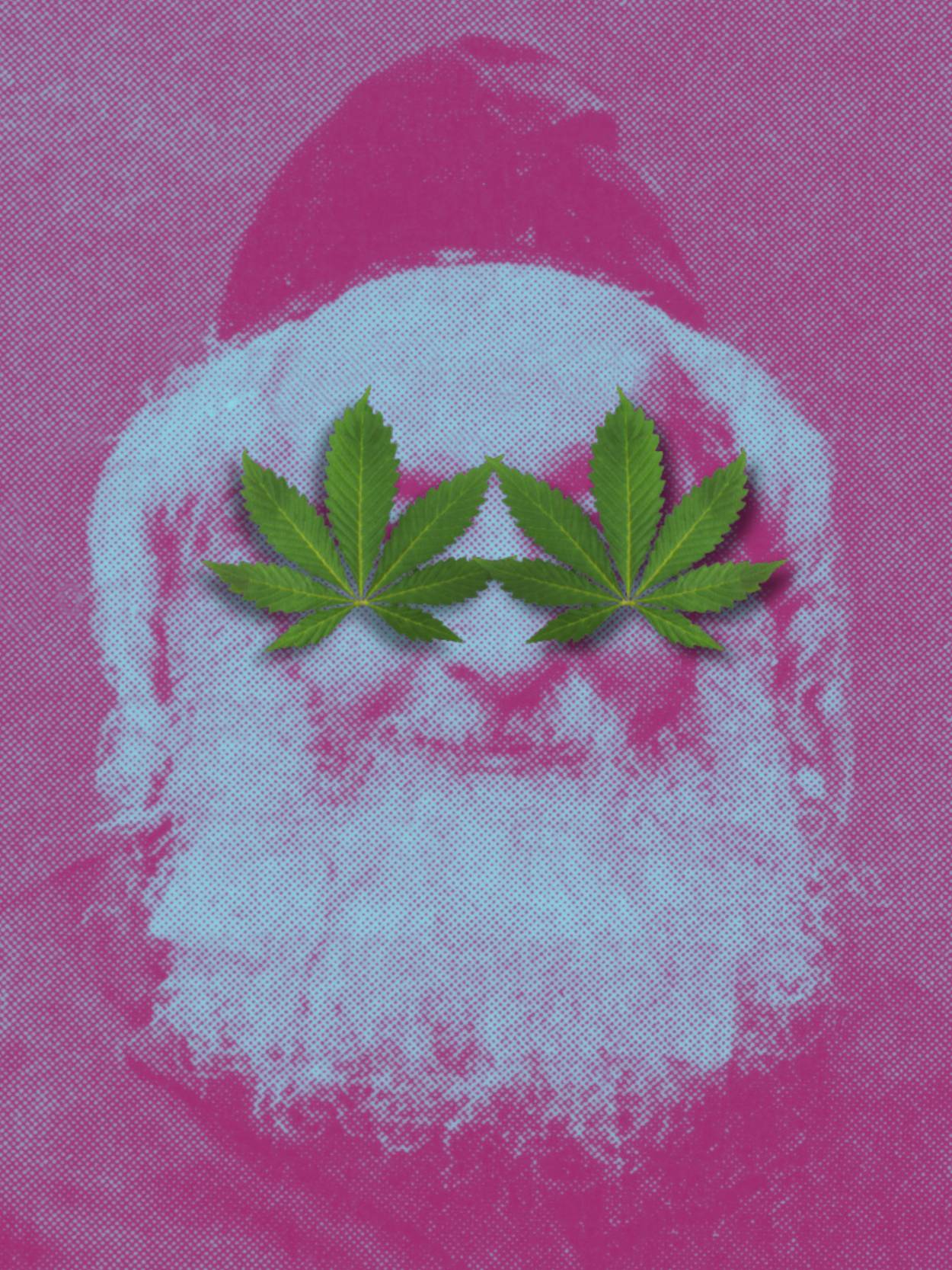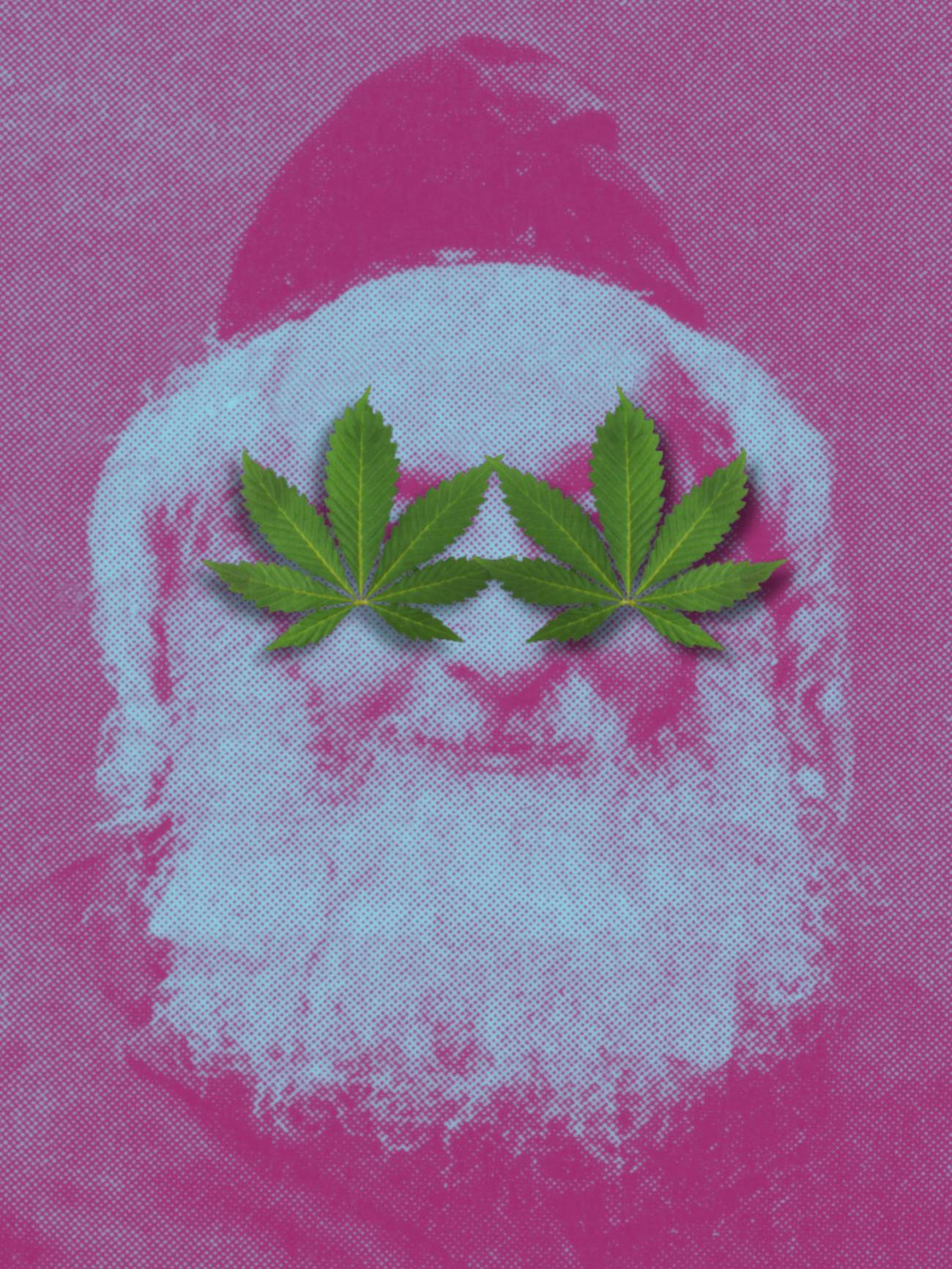The Conservative Movement Moves on Cannabis
A recent vote found overwhelming halachic support for medical marijuana—and narrower, qualified support for recreational use

Lola Schnaider

Lola Schnaider

Lola Schnaider

Lola Schnaider
In December, the Conservative movement’s Rabbinical Assembly Committee on Jewish Law and Standards—which sets halachic (Jewish law) policy for affiliated rabbis and the Conservative/Masorti movement worldwide—approved a teshuva (responsum) called “Medical and Recreational Cannabis Usage” that addresses social, legal, and medical issues around cannabis, and incorporates Jewish legal principles about balancing personal safety and health with the mandate of preserving life. (A teshuva is meant to serve as a teaching tool, providing guidance to Conservative/Masorti rabbis and their constituents worldwide on key issues.)
“Two of the most important and significant principles in Torah are that we should choose life and protect life,” said Rabbi Pamela Barmash, CJLS chair and professor of Hebrew Bible and biblical Hebrew at Washington University in St. Louis.
This teshuva represents the first time that the Conservative movement has ruled on cannabis usage. “Until recently there was no point of talking about cannabis because it was illegal,” said Rabbi Elliot Dorff, rector and distinguished service professor of philosophy at the American Jewish University. “But now that many [countries] have approved cannabis, including Israel, it’s important to understand what Jewish tradition says to us. Just because something is permitted in civil law doesn’t mean that Jewish law should allow it.”
Since the late 1980s, the CJLS has applied Jewish law to medical issues, explains Dorff, a committee member since 1984, including stints as its chair. The author of several medical-related responsa, Dorff voted in favor of this teshuva because of its thorough research of social, legal, and medical issues, as well as its comparison of marijuana with cigarette smoking; Dorff himself discussed these issues in a 2006 article called “Judaism and Marijuana.”
Previous CJLS teshuvot have addressed such medical-related topics as end-of-life medical care, provisioning health care, abortion, and COVID pandemic concerns such as face-masking, loneliness, and mental health.
According to CJLS rules, the passage of a teshuva requires six affirmative votes. This teshuva was divided into two separate piskei din, or rulings. The first concerned medical usage. By a vote of 19-1 with no abstentions, the CJLS approved the consumption of “medically prescribed cannabis under the continued supervision of a trusted and accredited medical professional.”
The second psak (ruling) concerned recreational cannabis, incorporating six distinct rulings that address: when usage is deemed safe and permitted by civil law, smoking, consumption by youth, consumption in an official Jewish communal context, blessings for edible forms, and consumption on fast days. It was endorsed by a vote of 9-6 with five abstentions. Committee members may also submit a written concurrence or dissent for distribution to RA members and for posting in its teshuvot database.
Committee member Rabbi Rachel Safman voted in favor of the first ruling on medical cannabis, citing the plethora of evidence supporting medical use, consistent with Jewish law that prioritizes health. However, she abstained from voting in favor of recreational cannabis because scientific evidence is not as well documented, particularly for young people with developing brains. “I felt a condemnation was too severe a position,” she said, “but I was not going to endorse marijuana for recreational purposes, especially for a youth population.”
Also concerned about the lack of regulation and limited research data, Rabbi Tracee Rosen voted against recreational cannabis usage, and is writing a dissent opinion. “There is a growing body of evidence that especially high-potency THC products are triggering psychosis in young people. I would like to see that we don’t make any move to approve from a halachic perspective until there is more knowledge and oversight of the product,” she said. “There cannot be recreational marijuana until there are labeling laws and we know what levels are safe for usage. That requires peer reviews and studies on the impact of cannabis usage on teens and young adults at the national level.”
While they don’t oppose recreational marijuana consumption, Rabbis Barry Leff and David J. Fine voted against the psak about recreational cannabis usage. They authored a dissenting opinion reflecting disagreement with the section that prohibits recreational use of cannabis in its smoked form (per Rabbi Reuven Hammer’s 2020 responsum, “Teshuva Concerning Smoking”). “I voted against this because it doesn’t make sense to ban marijuana smoking based on tobacco smoking,” Leff told me. “I think that is faulty logic.” But since there was no option to vote against that single item, he voted against the whole psak.
Rabbi Raysh Weiss—who does not use cannabis herself—began thinking about this issue in October 2018 when the government of Canada passed the Cannabis Act, legalizing and regulating cannabis according to a strict legal framework. At the time, Weiss was living in Canada, serving as congregational rabbi at Shaar Shalom Congregation and the Jewish chaplain at Dalhousie University in Halifax, Nova Scotia. “It was a hot topic in the university town where I was living and I felt it was an important conversation,” she told me. “I didn’t know much about cannabis usage but became curious as people approached me in public and private forums, although we were not going to use it in the community. My entry point into the conversation was Michelle Alexander’s book The New Jim Crow: Mass Incarceration in the Age of Colorblindness, which I had been reading, that discussed the war on drugs relative to the mass incarceration crisis in the U.S. Her book made me understand in a whole new lens the extent to which the war on drugs enabled the systemic backpedaling of the major advances of the civil rights movement.”
Weiss soon began teaching about cannabis from a Jewish perspective, conducting a series of classes for her Conservative synagogue, a session for the university’s Hillel, and one-on-one conversations with college students. She also started researching the impact on individual rights of the public consumption of tobacco, given the risk from secondhand smoke as outlined in the 1964 Office of the Surgeon General of the United States report on smoking and health. This issue was also highly personal because of the pungent smell permeating her home which shared a back parking area with shops frequented by “cannabis-enthusiastic” young men.
In March 2021, Barmash invited Weiss to prepare a teshuva in response to the numerous requests that the Rabbinical Assembly and the Committee on Jewish Law and Standards had received from member congregational rabbis and healthcare chaplains for guidance about Jewish law on marijuana. (Committee members as well as RA member rabbis can write teshuvot.) The committee meets each fall and spring, reviewing the many teshuvot (approximately six to 12 are received each season) submitted by rabbis in the Conservative movement. Weiss submitted her first draft that fall for review and comments. The teshuva underwent three revisions before final acceptance. (Typically, each teshuva undergoes two or three readings before the final vote.)
In researching this teshuva, Weiss drew upon scientific and medical research, statistical and sociological studies, as well as biblical and rabbinic sources about the injunction to preserve life—as well as Reuven Hammer’s 2020 Conservative movement teshuva on smoking and the Reform movement’s 1984 responsum by Rabbi Walter Jacob that permits medical usage of drugs, addressing halachic issues in detail. Subsequently, in 2001 and 2003 the Reform movement passed resolutions supporting the medical usage of marijuana for patients with intractable pain and certain medical conditions under medical supervision. A spokesperson for the Union for Reform Judaism told Tablet that the movement has not altered its position supporting medical use of marijuana since its November 2003 resolution.
“What makes Jewish law interesting is that it is not legal or illegal, but we are talking more about the ethical contours that permeate every aspect of our lives,” explained Weiss. “What Judaism asks of us is more than just following the law but invites us to explore how we can elevate our day-to-day interactions. Every choice we make daily has an ethical element.”
Revising this teshuva for over two years presented Weiss with many challenges: One issue was the limited scientific research and longitudinal studies in the U.S. about the dangers of cannabis consumption and how different genetic bodies may react differently to the substance. “This was an ethically challenging stance for me personally,” she said, “because when I talk about the dangers of consumption, I don’t want to promote a culture where it becomes normative to casually consume cannabis without consideration of its effect on a person.”
Meanwhile, rapidly changing cannabis legislation, both in the U.S. and abroad, required frequent revisions in order to keep pace with recent developments: More than 40 U.S. states have legalized medical cannabis, with recreational usage legalized in D.C. and 24 states; Delaware, Minnesota, and Ohio legalized it in 2023. Marijuana has also been legalized in many other countries around the world.
Looking ahead, Weiss expects this teshuva may evolve. “If forthcoming medical research changes our current understanding, this teshuva is subject to change,” she said. “What I am saying is that it makes sense from a halachic standpoint to allow the usage of medical and recreational cannabis within specific responsible limitations based on the sources we have available to us now, both scientifically and from Jewish legal literature.”
“Anecdotal evidence indicates that marijuana is a gateway drug for those that are addictive,” said Barmash, the CJLS chair. Nevertheless, she voted in favor of both parts of the teshuva because she agrees that medical marijuana is acceptable and this ruling advises those who need it under the supervision of a medical professional, while the second part gives a nuanced permission based on the principles of Halacha. She supports the medical use of cannabis, while emphasizing that recreational use requires further research to ensure there is no unreasonable risk, particularly for children: “How do we balance the risks to those whose brains are still growing, especially for young children where CBD gummies look like candy and who may accidentally consume one?”
Therefore, Barmash urges adults to store cannabis products safely out of the reach of children. In 2023, Pediatrics, the Journal of the American Academy of Pediatrics reported increases in unintentional pediatric ingestions of cannabis edibles after legalization. In states with legalized cannabis, regional poison centers have seen an increase in calls regarding exposures and in visits to pediatric emergency care centers.
Finally, as the teshuva emphasizes, for the Jewish community, halachic issues require consideration: The blessing Baruch ata Adonai Eloheinu melech ha’olam shehakol niyah bidvaro. (Blessed are You, Lord our God, Ruler of the universe, at whose word all came to be) should be recited before eating cannabis products. Consuming cannabis products in a Jewish communal setting is prohibited. As for kashrut, the Orthodox Union has certified medical marijuana products by Vireo Health and the Chicago Rabbinical Council has certified marijuana for medical use, but some argue that kashrut also involves ethical considerations. “Kashrut should be about regulating the possible danger in the product and, also, cannabis products may have varying amounts of CBD,” explained Barmash.
As to the significance of this teshuva, Weiss sums it up: “Any major world issue has its place in the ongoing Jewish legal conversation, and this is not an exception. With this particular issue I want to emphasize how we are weighing the relative benefits and risks and how can we apply our traditional Jewish wisdom as we navigate contemporary social issues.”
Paula Jacobs is a writer in the Boston area.